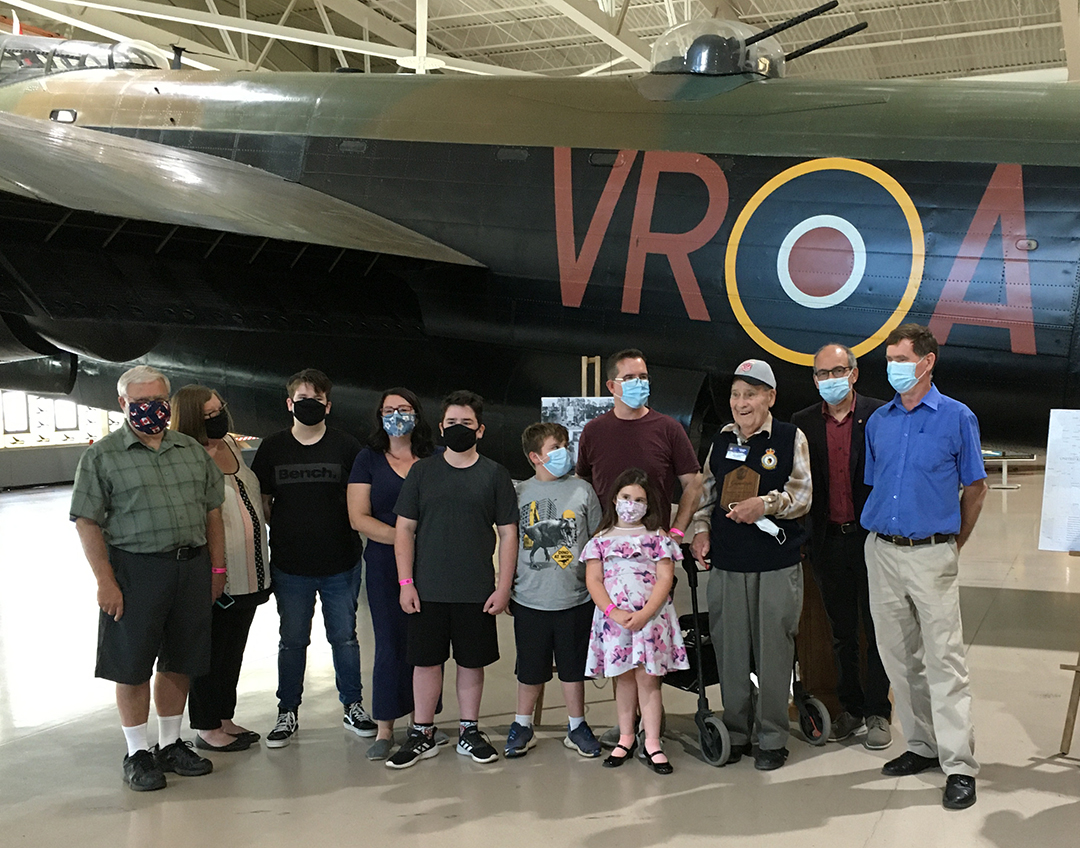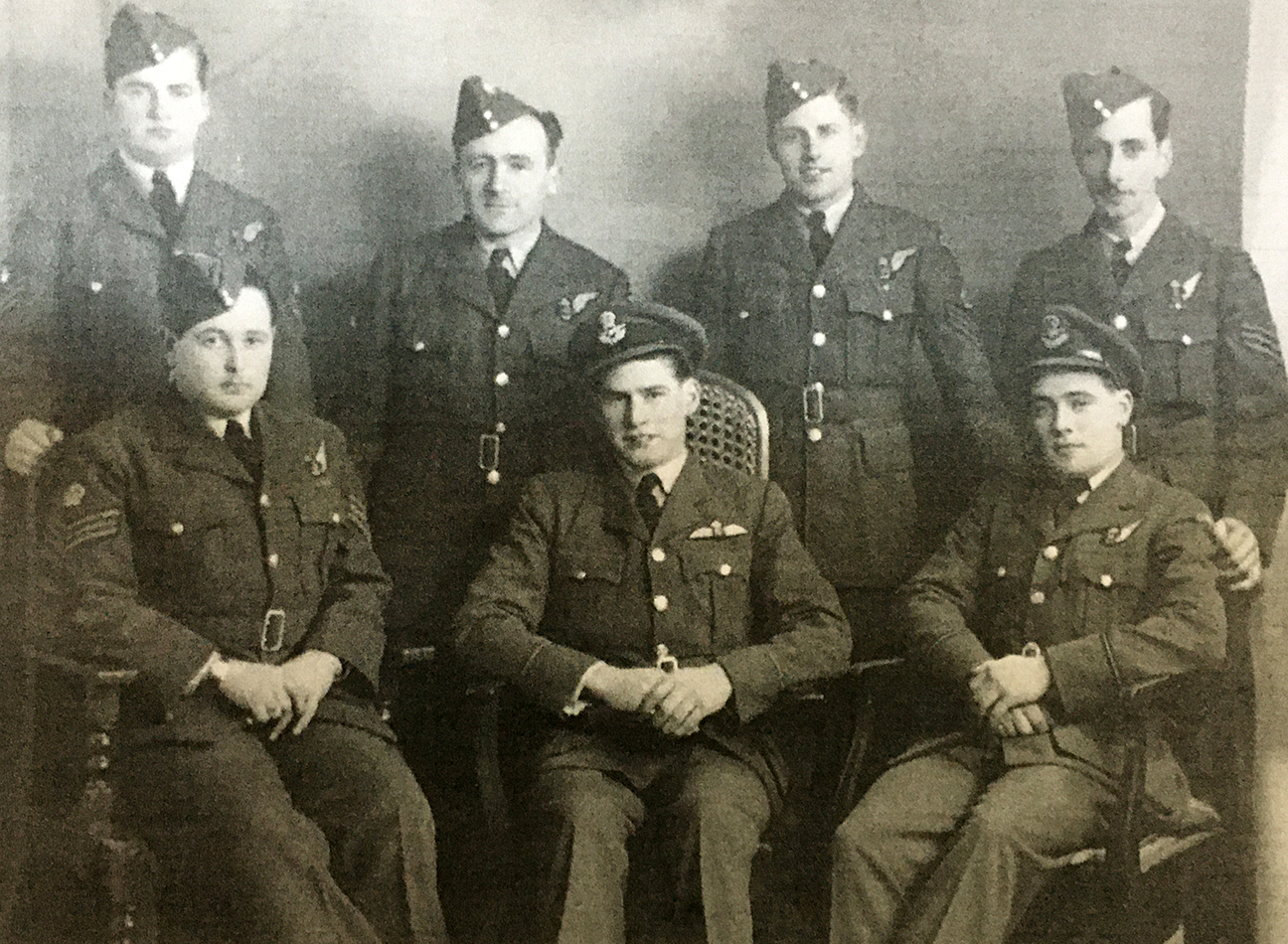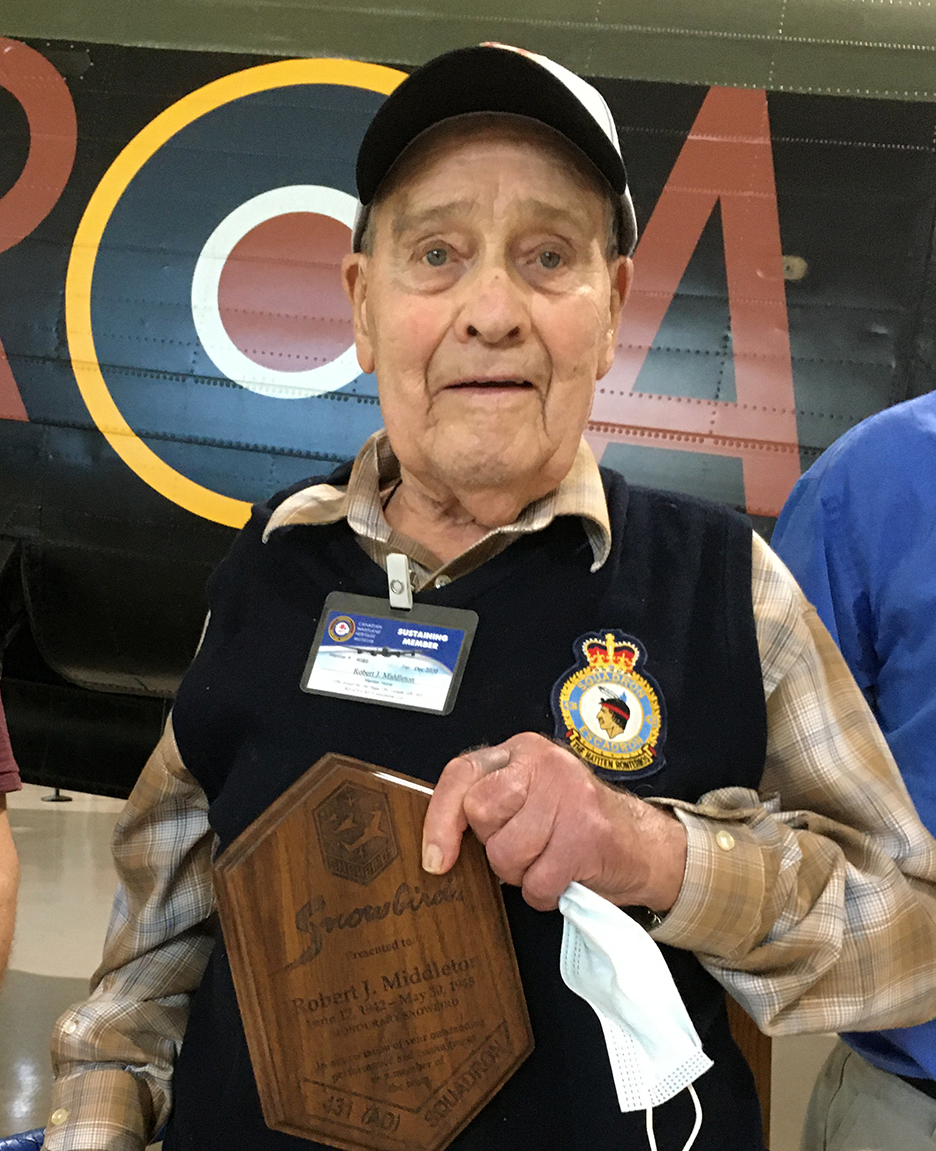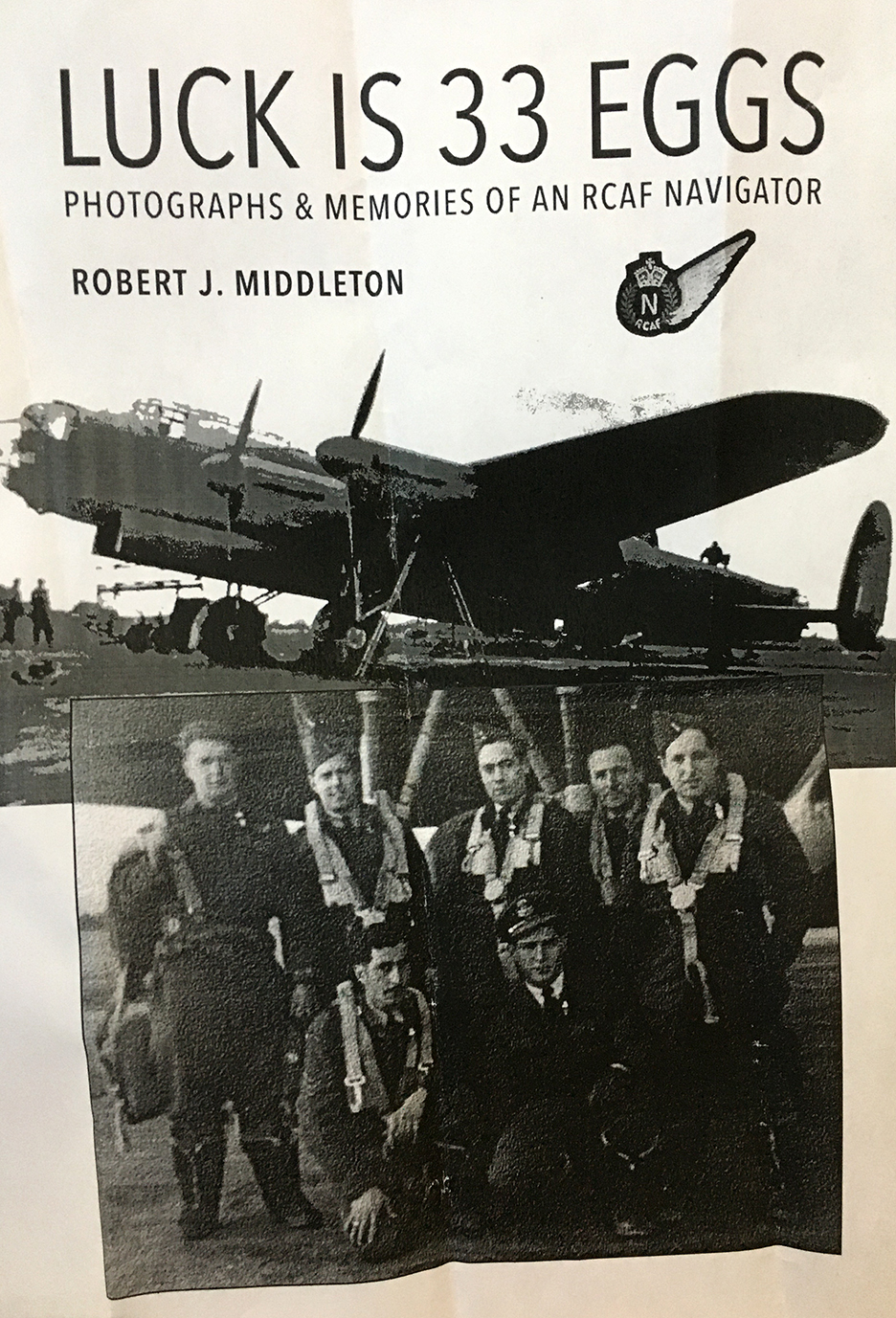
It was kind of like the last breakfast for a condemned man. Whenever Canadian and other Second World War aircrew got word they were facing a tough bombing mission over enemy territory in Europe, the crews were invited to enjoy the most precious breakfast in all of Britain at that time.
“Bacon and eggs. You got bacon and eggs,” my veteran friend Bob Middleton told me on the weekend, “because you didn’t know if you’d be coming back.”
Those nights when Bomber Command aircrews boarded their Lancaster, Halifax, Whitley or Mosquito aircraft to fly most of the night over Nazi-occupied Europe, seem oh so long ago.

But at a small gathering of family and friends of Bob Middleton, at the Canadian Warplane Heritage Museum in Hamilton, on Sunday, the 97-year-old RCAF veteran navigator shared some wartime stories, mostly the funny or quirky ones. Though they happened over three-quarters of a century ago, former Flying Officer Middleton gave life to those stories, memories of events that changed his life and restored peace that the world craved so desperately then.
Born in 1923, raised and educated in east-end Toronto, Bob learned in the spring of 1942 that Danforth Tech was wrapping up classes early to allow young men to enlist. Bob took advantage. He’d always loved flying and wanted to serve in the RCAF as a fighter or bomber pilot.
When it came to the final level of pilot training, however, his Air Force instructors decided he’d make a better navigator. So, it was math, astronavigation, and map-reading that became his training focus. Overseas, on operational training, they put Bob – and scores of other pilots, navigators, radio operators, and gunners – in a large hall to make up their own crews on their own.
“Kind of like going to a high school dance and finding a partner to dance with for the night,” I suggested. Bob nodded and smiled.
But that’s when it got serious. Eventually, Middleton and his crew were assigned to RCAF 431 “Iroquois” Squadron at Croft, England.
“They called it ‘the Chop Squadron,’” he said. “The losses (of aircraft and crews) at the squadron were so severe. Not exactly a welcome thought.”
To put things in perspective, about 50,000 Canadians served in Bomber Command during the war. More than 10,000 were killed, missing in action, or died in POW camps.
F/O Middleton flew 33 bomber operations to and from enemy targets. He called himself “the nosey navigator” because he was always mindful of getting the job done and navigating his crew home safely. He said one time that got him into trouble.

On a bombing op to Munich in 1944, they were flying so high, the crew used oxygen masks. On this particular operation, they’d dropped their bombs, taken photos of the results, and Bob’s pilot, Don Rombough was waiting for Bob’s directions to get back to England.
“Shouldn’t we be turning for home, Bob?”
No answer. Somebody checked Bob at his navigator’s position and found Bob’s oxygen line had been disconnected. He’d momentarily been unconscious. When they reconnected, Bob blurted out, “I’ll tell you when to turn… Now!” And their navigator came through once again, getting them out of Europe through searchlights, anti-aircraft fire, and night fighters.

Bob Middleton, didn’t expect to be on the spot for some of those stories last Sunday. He just thought his family was taking him out for the day to the Warplane Heritage Museum to escape self-imposed pandemic isolation. When I dropped in, nothing seemed out of the ordinary. Bob and I are friends and are both fascinated by those museum warbirds.
But then we sprang a surprise on Bob. Because the RCAF 431 Squadron Snowbirds demonstration team adopted Bob’s old Bomber Command squadron number, they decided to make him an honorary “Snowbird.” He took it in stride.
“Icing on the cake,” he said. And Bob was given an inscribed plaque, commemorative photo of the Snowbirds in formation, and a Snowbirds ball cap. “What an honour,” he added.
While so many women and men of his generation are either gone, or are hesitant to recall those humorous and harrowing moments of the war, Bob Middleton has recognized their importance. Better to set the record straight and share them with the world while he can. Inspired by his father’s willingness to do that, son Dan Middleton has assembled a collection of F/O Middleton’s remembrances.

“The book is called Luck is 33 Eggs: Photographs and Memories of an RCAF Navigator,” Dan said. The book comes out this fall.
On Sunday, when the Snowbirds team surprised Bob with honorary membership in the squadron, Bob kept shaking his head at those 33 bacon-and-eggs breakfasts during the war, never knowing if he’d get his bomber crew and himself home safely at the end of the night.
“You could be the best,” he said finally, “but without a bit of luck, it didn’t matter.”
On behalf of all members of 431 Air Demonstration Squadron, home of the Snowbirds, we welcome Mr. Middleton into our list of honouraries and truly thank him for his service to this great country of ours, Canada.
CWO B.W. Byers
SCWO
431 Air Demonstration Squadron
I just bought this book. Ralph Hamel was my grandfather. There are numerous pictures of him in the book.
Gave my Dad this book for Father’s Day “Luck is 33 eggs” – book is fantastic – my Dad recites passages every time I visit.